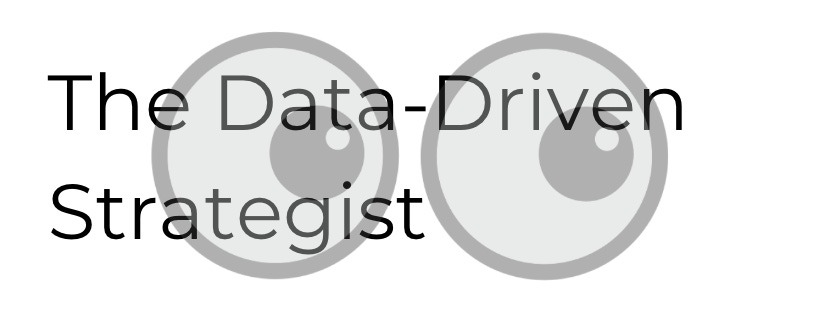Shifting Gears: The Dynamic COO Role in Startups & My Experience
My perspective on operational leadership.
TL;DR: I explore the evolving role of the Chief Operating Officer in the modern tech and startup landscape. Drawing from my experiences, I examine various COO roles, such as Data-Driven Strategist, a Guiding Hand, and an Integrator. I emphasize the importance of understanding and adapting to these changing roles to maximize my impact on an organization.
How Did We Get Here?
Let’s start with a little bit of background info.
I spent the first 15 years of my professional life working in event production. I was involved in planning events from the idea stage and implementing those plans for years. Later, I found myself leading the operations and finance unit in a startup focused on innovation. After six years in this position, I switched to a fractional working model. Currently, I'm handling operational issues in various startups at different scales.
Throughout these 20+ years, I struggled to explain the value my role brought to an organization, especially when defining the operations field and understanding its benefits. A while ago, I came across a seventeen-year-old article in the Harvard Business Review: Second in Command: The Misunderstood Role of the Chief Operating Officer.
By the way, I never held the title of COO, but that's not important. If you’re in charge of operations, leading the team (or solo), and working closely with leadership, then it’s the same stuff.
This article states that the COO role is the only one that can't be clearly defined. (a comforting observation 🙏🏽). Due to this complexity, the article classifies the possible roles of a COO based on their relationship with the CEO.
I read the article several times, and with each reading, I began to understand better how the operations-related tasks I've carried out fit within the organization and how they might be perceived in the broader business world. However, seventeen years have passed since the article was written. So, I asked myself what the COO role (or Operations Lead) might look like today, particularly in the startup and tech ecosystem.
I also continued with the approach in the article and further defined the COO role based on the relationship with leadership. Here is my list with a possible classification of COO roles in today's startup and tech ecosystem:
1. The Integrator
In this role, the COO is the Integrator, working closely with the Visionary CEO to create an organizational structure supporting the company's goals and objectives. The Integrator streamlines processes ensures efficient use of resources, and helps maintain agility as the company grows. This COO balances the CEO's focus on innovation and disruption, ensuring that the company remains organized and efficient.
2. Growth Architect
As a Growth Architect, the COO partners with the CEO to drive rapid growth and scale the business. The COO identifies growth opportunities, designs and implements growth strategies, and optimizes operations to achieve maximum impact. This COO's focus on growth complements the CEO's efforts, helping the organization stay competitive and agile in a rapidly changing landscape.
3. The Agile Facilitator
In the Agile Facilitator role, the COO embraces an agile mindset alongside the CEO, prioritizing adaptability, continuous improvement, and iterative decision-making. The COO helps build an agile organization that can respond quickly to market changes, pivot when necessary, and rapidly iterate on products and services. This COO ensures the company is prepared to navigate the fast-paced, ever-evolving world of tech and startups.
4. The Data-Driven Strategist
As a Data-Driven Strategist, the COO works closely with the CEO to establish a data-driven culture within the organization. The COO ensures that decisions are informed by data and insights, creating systems and processes that enable data-driven decision-making. This COO's focus on data empowers the company to make smarter choices, reduce risk, and achieve better results.
5. The Ecosystem Builder
In the Ecosystem Builder role, the COO collaborates with the CEO to cultivate relationships with investors, strategic partners, and other stakeholders within the tech and startup ecosystem. The COO leverages these connections to create mutually beneficial opportunities, helping the company access resources, expertise, and support that can accelerate growth and drive success.
6. The Customer Advocate
As the Customer Advocate, the COO works alongside the CEO to prioritize customer success and satisfaction. The COO ensures that the company's products and services are designed with the customer in mind, continually seeking feedback and iterating on their offerings to meet customer needs better. This COO's relentless focus on the customer helps the company build strong relationships and foster loyalty, fueling long-term success.
7. The Guiding Hand
In the Guiding Hand role, the COO serves as a counselor and consultant to the CEO, especially in cases where the CEO is new to their position or has limited experience in a particular industry. The Guiding Hand COO brings vast knowledge, expertise, and practical experience, helping the CEO navigate the challenges of leading a growing company. This COO's role is crucial for nurturing the CEO's leadership abilities and securing the organization's long-term success.
So, Who am I?
I realized that I relate to three of these roles. Of course, I don't take on all three roles simultaneously in every team I work with. Sometimes, I contribute by taking on just one role, as carrying all of them would be impossible.
I think I am closest to The Data-Driven Strategist. The co-founders’ contribution -whom I’ve worked with over the past ten years- has been invaluable to my success in this role. I have always been good with numbers but I learned that numbers don't mean much without the right story derived from data. I love my role in capturing the story the data tells, making it visible, and sharing it with the team.
Next comes The Guiding Hand. For ten years, I worked as a part-time lecturer at the university, guiding young folks. For the next ten years, I mentored many leaders. These two decades were my preparation process for the Guiding Hand role. In fact, I even had the chance to be invited to Toyi’s founding team I began mentoring in 2017. I'm not a toy industry expert, but I've been a guiding hand through my contributions to the leadership of the two founding partners.
Lastly, I see myself in The Integrator role. I often have the opportunity to implement some of the tasks defined under this role in different organizations, like taking responsibility for setting company goals and objectives. However, I have never performed this role 100% in any team.
These seven new COO types still don't feel entirely accurate or well-thought-out to me. I believe I need to think more about it and work on it further. It can be enlightening to view the contributions of operations from a product management perspective, but for now, I'll leave it here.
If you have any suggestions to enrich the topic, please share them; I would be happy to read.
Stay curious.
Tolga









Always fascinating! Thanks for this write up and digestible summary of that HBR article. I REALLY like this idea of the dynamic between CEO + COO. It inspires me to wonder what the role of the CEO should be? How does that role vary? What causes that? And then what role should the COO play? And maybe... with all these variables and questions, what should the anchor be to start with?
I guess, ultimately with human dynamics... it's always in flux and likely always different in each startups unique constellation. The framework you shared above is a great place to start the analysis. Thanks again for that.